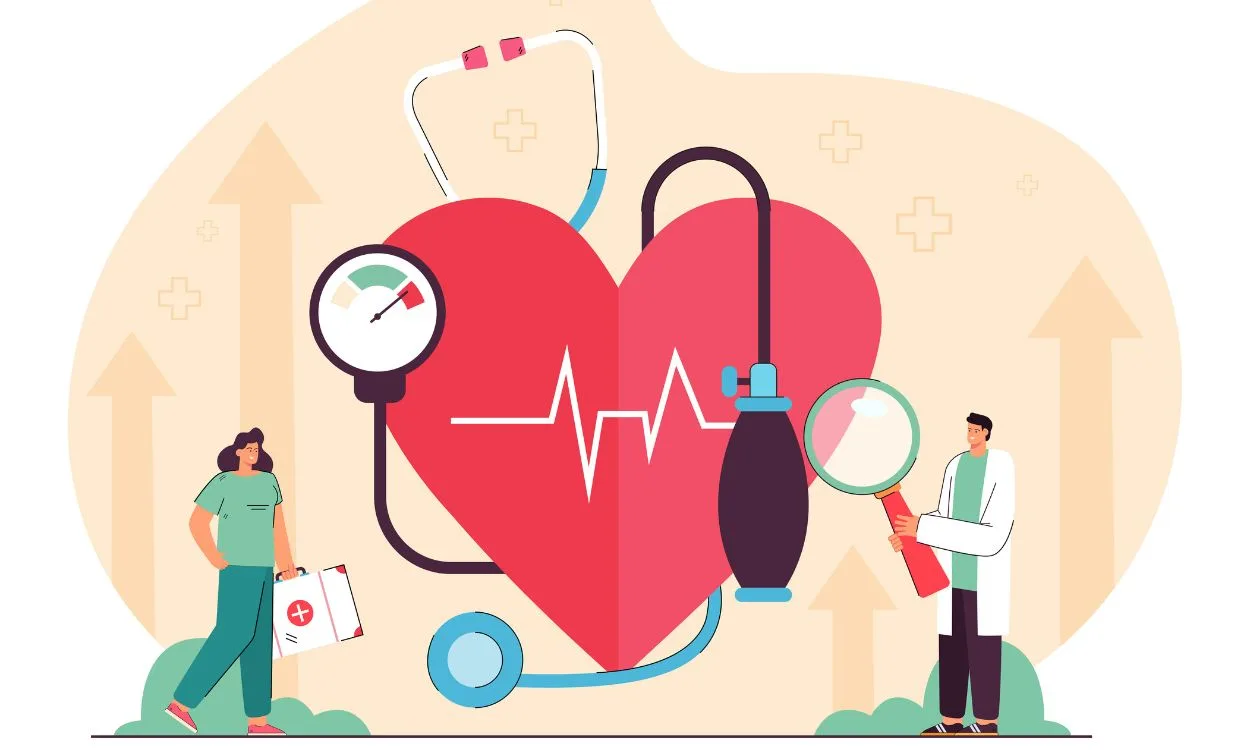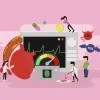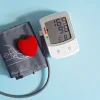Age and Hypertension: Understanding the Connection and Managing Your Health with Fitpaa
Hypertension, also known as high blood pressure, is a common medical condition that affects millions of people worldwide. It is a leading risk factor for various cardiovascular diseases and can have serious health consequences if left untreated. While several factors contribute to the development of hypertension, age plays a significant role in determining an individual’s risk. In this article, we will delve into the relationship between age and hypertension, exploring why the risk increases with age and how it impacts different age groups.
Understanding Hypertension
Before we explore the impact of age on hypertension, let’s briefly understand what hypertension is. Blood pressure is a measure of the force exerted by the blood against the walls of the arteries as the heart pumps it around the body. Hypertension occurs when this pressure consistently remains high, indicating that the heart and blood vessels are working harder than they should. There are two primary types of hypertension:
- Primary (essential) hypertension: This is the most common type of hypertension, accounting for around 90-95% of cases. It develops gradually over time and has no identifiable cause, although risk factors such as age, family history, obesity, and lifestyle choices can contribute to its development.
- Secondary hypertension: This type of hypertension is caused by an underlying medical condition, such as kidney disease, hormonal disorders, or the use of certain medications. Secondary hypertension typically appears suddenly and is more prevalent in younger individuals.
Age and Hypertension
As individuals age, their risk of developing hypertension increases significantly. Several factors contribute to this age-related rise in blood pressure:
- Arterial stiffness: With age, the arteries tend to become less elastic and more rigid. This stiffness makes it harder for the arteries to expand and contract, resulting in increased resistance to blood flow and higher blood pressure.
- Decreased renal function: The kidneys play a vital role in regulating blood pressure by controlling the balance of salt and water in the body. As people age, their renal function gradually declines, leading to decreased efficiency in maintaining blood pressure within the normal range.
- Hormonal changes: Hormonal changes associated with aging, such as decreased production of hormones like estrogen and testosterone, can influence blood pressure regulation. These changes can contribute to an increase in blood pressure levels.
- Lifestyle factors: As individuals age, they may be more prone to adopting unhealthy lifestyle habits that can contribute to the development of hypertension. Factors such as sedentary behavior, poor diet, excessive alcohol consumption, and smoking can all increase the risk of high blood pressure.
Impact on Different Age Groups
While hypertension is more common in older adults, it can also affect younger individuals. Here’s a breakdown of how age impacts the risk of developing hypertension in different age groups:
- Young adults: Hypertension in young adults is often associated with secondary causes such as kidney disease, hormonal disorders, or medication use. However, unhealthy lifestyle choices, such as a poor diet high in sodium and low in potassium, lack of physical activity, and excessive stress, can also contribute to the development of primary hypertension in this age group.
- Middle-aged adults: This age group experiences a significant increase in the prevalence of hypertension. The combination of age-related physiological changes, lifestyle factors, and the cumulative effects of risk factors over time contribute to the higher incidence of hypertension in middle-aged adults.
- Older adults: Hypertension becomes increasingly common as individuals enter their senior years. Arterial stiffness, reduced renal function, and other age-related changes make older adults more susceptible to developing hypertension. It is estimated that more than two-thirds of individuals above the age of 60 have hypertension.
Managing Hypertension
While age is a significant risk factor for hypertension, it is essential to understand that hypertension is a manageable condition. Lifestyle modifications and, if necessary, medical interventions can help control and prevent the complications associated with high blood pressure. Here are some strategies for managing hypertension:
- Healthy diet: Adopting a balanced and nutritious diet, low in sodium and rich in fruits, vegetables, whole grains, and lean proteins, can help lower blood pressure. The Indian diet, rich in spices, whole grains, and plant-based foods, can be particularly beneficial in managing hypertension.
- Regular physical activity: Engaging in regular physical activity, such as brisk walking, cycling, or swimming, can help lower blood pressure and improve overall cardiovascular health. Aim for at least 150 minutes of moderate-intensity aerobic activity per week.
- Weight management: Maintaining a healthy weight is crucial in managing hypertension. Losing excess weight, particularly around the waistline, can significantly reduce blood pressure.
- Stress management: Chronic stress can contribute to hypertension. Practicing stress management techniques such as meditation, deep breathing exercises, and yoga can help reduce stress levels and promote relaxation.
- Medication: In some cases, lifestyle modifications may not be sufficient to control blood pressure. In such instances, healthcare professionals may prescribe antihypertensive medications to help manage hypertension effectively.
Introducing Fitpaa – Your Personal Health and Fitness Solution
While age is a significant risk factor for hypertension, managing hypertension often requires a comprehensive and personalized approach. Fitpaa, an AI-driven Metabolism monitoring and management technology, offers a unique solution to help individuals achieve their health and fitness goals, including managing hypertension.
Fitpaa combines the latest research in Lifestyle Medicine and Behavioral Therapy to strengthen all 11 organ systems in the body, including the cardiovascular system. By optimizing metabolism and offering personalized fitness plans, nutrition therapy, and cognitive behavior therapy, Fitpaa helps individuals achieve their health and fitness goals with a 100% guarantee.
With the Fitpaa app, you’ll have access to a range of tools and features to support your journey towards better health, including a virtual workout trainer, diet tracker, performance tracking, and progress monitoring. Fitpaa’s real-time guidance technology incorporates habit-building techniques and timely nudging to keep you motivated and inspired throughout the day.
Fitpaa is dedicated to helping individuals achieve their health and fitness goals, with a commitment to providing guaranteed results. Your well-being is their mission, and they are passionate about transforming lives through their innovative approach to health and fitness.
To experience the power of Fitpaa and embark on your journey towards a healthier life, download the Fitpaa app today. Your health and fitness goals are within reach, and Fitpaa is here to guide you every step of the way.









